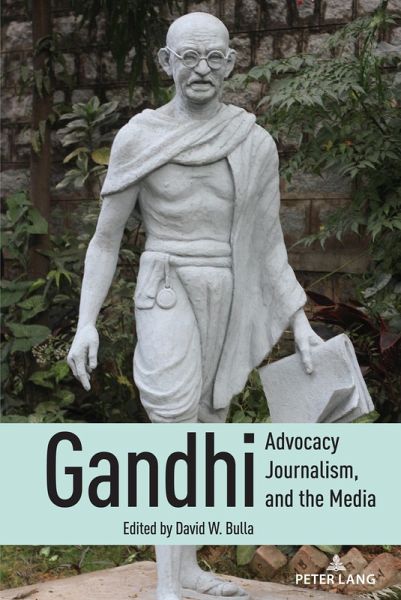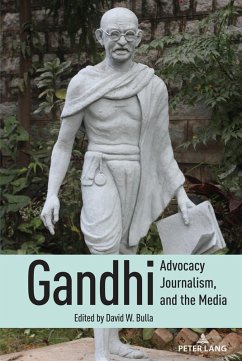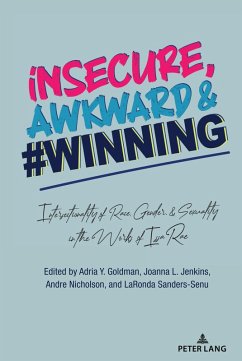
Gandhi, Advocacy Journalism, and the Media (eBook, ePUB)
Versandkostenfrei!
Sofort per Download lieferbar
Statt: 84,95 €**
70,95 €
inkl. MwSt.
**Preis der gedruckten Ausgabe (Gebundenes Buch)
Alle Infos zum eBook verschenkenWeitere Ausgaben:

PAYBACK Punkte
35 °P sammeln!
This book documents the journalistic career of Mohandas K. Gandhi. Known as the Mahatma and the Father of India, Gandhi was also a journalist. However, he was a not a journalist in the same vein as those working for the New York Times or the BBC. Rather, Gandhi was what is called an advocacy journalist; that is, his journalism served various political, social, and cultural causes-most importantly, in the long run, the Indian independence movement. Among the other key causes were equality, human rights, Muslim-Hindu relations, vegetarianism, chastity, poverty, and hygiene. The chapters in this ...
This book documents the journalistic career of Mohandas K. Gandhi. Known as the Mahatma and the Father of India, Gandhi was also a journalist. However, he was a not a journalist in the same vein as those working for the New York Times or the BBC. Rather, Gandhi was what is called an advocacy journalist; that is, his journalism served various political, social, and cultural causes-most importantly, in the long run, the Indian independence movement. Among the other key causes were equality, human rights, Muslim-Hindu relations, vegetarianism, chastity, poverty, and hygiene. The chapters in this book were written by authors who attended a conference on Gandhi and media at the University of St. Andrews on the 150th anniversary of Gandhi's birthday, in October 2019. It relies on careful analysis of his newspapers, produced in both South Africa and India, including Indian Opinion, Young India, the Gujarati newspaper Navajivan, and three versions of Harijan, which were in English, Gujarati, and Hindi. The authors also place Gandhi's version of journalism in a historical context of small, family-operated weekly newspapers that were commonplace in the nineteenth century. Finally, the book looks at other media tools Gandhi used to transmit his messages to the public, including his recorded voice for gramophone.
Dieser Download kann aus rechtlichen Gründen nur mit Rechnungsadresse in A, D ausgeliefert werden.













